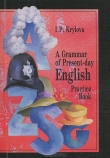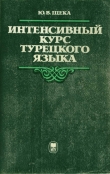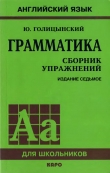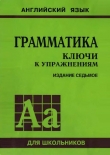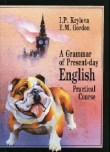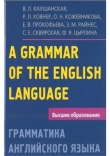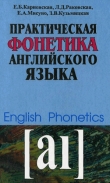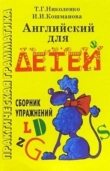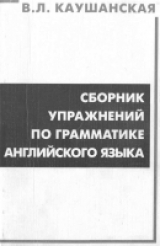
Текст книги "Сборник упражнений по грамматике английского языка"
Автор книги: Валентина Каушанская
Жанры:
Учебники
,сообщить о нарушении
Текущая страница: 4 (всего у книги 20 страниц)
THE ADJECTIVE
Exercise 1. State the morphological composition of the following adjectives.
Pretty, bushy, weather-stained, thoughtful, hard-hearted, illegitimate, sober, non-party, low-bred, improbable, sceptical, counter-revolutionary, careworn, beloved, wicked, disobedient, long-legged, regular, water-proof, large, well-timed, homeless, shaky, courageous, panic-stricken, blindfold, Portuguese, newly-baked, antique, peace-making, forlorn, illegible, abundant, red-haired, small, deep-blue, bookish, snow-white, respectable-looking.
Exercise 2. Give the comparative and superlative degrees.
Cosy, merciful, bad, complete, fat, cheap, big, clumsy, stupid, far, miserable, narrow, virtuous, simple, merry, regular, expensive, low, deep, sad, significant, bitter, intimate, lazy, old, serious, tiny, clever, little, considerate, gay, good, much, dark, beautiful, dear, fit.
Exercise 3. Use the adjective in the comparative or superlative degree.
1. They had dined well and were now drinking hard... their faces getting __ and __ (red, red) (Priestley) 2. Was there anything in the world __ than indecision? (bad) (Galsworthy)3. He was only five years __ than I was, which made him forty-five, (young) (Snow)4. He loved his brother and he had done his brother what people seemed to consider __ of wrongs, (bitter) (Greene)5. __ sin towards our fellow creatures is not to hate them, but to be indifferent to them, (bad) (Shaw)6. He had been a great fencer, before the war, __ fencer in Italy, (great) (Hemingway)7. She is stopping at one of __ hotels in town, (good) (Saroyan)8. Difficult to believe it was so long ago, he felt young still! Of all his thoughts this was __, __ With his white head and his loneliness he had remained young and green at heart, (poignant, bitter) (Galsworthy)9. She received congratulations as if she were __ of women, (happy) (Hansford Johnson)10. Kate remembered the little general; he was a good deal __ than herself, (small) (Lawrence) .11. I think we'll resume the conversation when you're a little __, Caroline, (calm) (Maugham)12. They had never made __ pretence of believing him. (little) (Greene)13. Things went from bad to __ (bad) (Saroyan)14. He took his trinkets, carried them to the __ pawnshop he could find, and being offered forty-five dollars for the lot, took it. (presentable) (Dreiser)15. He felt her breathing grow – and __ (slow, easy) (Cusdck) 16. To be ashamed of his own father is perhaps __ experience a young man can go through. (bitter) (Galsworthy)17. It's __ in here than it is on the street. (hot) (Salinger)18. I think you're about __ girl in school, (pretty) (/. Shaw)19. All his life he had taken pains to be __, __ than his fellows, (strong, brave) (Saroyan)20. From that moment may be dated the downfall of __ and __ of the Indian nations, that existed within the limits of the present United States, (great, civilized) (Cooper) 21. Mr. Micawber, under pretence of showing me a __ way than that by which I had come, accompanied me to the corner of the street, (near) (Dickens)22. He would walk here and there and be no __ than an ant in an ant hill, (conspicuous) (Greene)23. We slept in a double-bedded room, which was __ that the little country inn could do for us. (good) (Conan Doyle)24. This is Sam Penty one of our __ artists, (good) (Priestley)
Exercise 4. Translate into English.
1. Киев – более древний город, чем Москва; это один из древнейших городов России. 2. В XVI веке Испания была самой могущественной державой мира. 3. Волга длиннее Днепра; это самая длинная река Европы. 4. Ватикан – самое маленькое государство в Европе. 5. Одной из важнейших проблем сегодняшнего дня является установление прочного и длительного мира. 6. Условия жизни трудящихся в странах социалистического лагеря значительно лучше, чем в странах капиталистического лагеря. 7. Можно надеяться, что в ближайшем будущем культурные связи с Англией будут еще более тесными. 8. Точка кипения (the boiling point) спирта ниже точки кипения воды. 9. Платина тяжелее золота; это один из самых тяжелых металлов. 10. Утро было прекрасное, но к вечеру погода стала хуже, ветер усилился, и темные тучи покрыли небо.
Exercise 5. Point out all the substantivised adjectives and state whether they are wholly or partially substantivised.
1. He basked in the company of the young. (Snow)2. We must take the bitter along with the sweet. (Reade)3. She warned the domestics not to touch the child, as Mrs. Osborne might be offended. (Thackeray)4. It was a surprise to the optimistic: but it was even more of a surprise to the experienced. (Snow)5. Oh, I know he is a right good fellow, but it belongs to the rank of the impossible. (Meade)6. Imogen turning her luscious glance from one to the other of the «old dears», only smiled. (Galsworthy)7. How do I know what's gone on between you? The rights and the wrongs of it. I don't want to know. (A. Wilson)8. Willoughby was wearing greens, garrison hat, and all his ribbons. (Heym)9. They were like poor savages confronted with a beautiful white girl. (Murdoch)10. This year I covered half the world and saw people in such numbers – it seems to me I saw everybody but the dead. (Bellow)11. But they had been such innocents then I (Galsworthy)12. He was, as they saw it, part of the rich and superior class and every poor man knew what that meant. The poor must stand together everywhere. (Dreiser)13. I was soon to discover that Gevaert was never interested in what «inferiors» had to say. (Clark)
THE PRONOUN
Exercise 1. Point out the pronouns in the following sentences and define the class each belongs to.
1. There's nothing for any of us to do. (Snow)2. Both these people were resolved to treat Mr. Polly very well, and to help his exceptional incompetence in every possible way. (Wells)3. Tom presented himself before Aunt Polly, who was sitting by an open window in a pleasant rearward apartment, which was bed-room, break fast-room, dining-room, and library combined. (Twain)4. Such were the reflections of Felix before the brass tablet. (Galsworthy)5. It was the sort of solemn warning that a sanguine man gives to others, because he ought to give it to himself. (Snow)6. Elizabeth and George talked and found each other delightful. (Aldington)7. What we need is a higher and purer political morality. (Dreiser)8. She hesitated a moment, and then sat down beside me, and laid her hand on mine. (Dickens)9. The uniform had been cut for a stouter person than myself, but one, fortunately, of approximately the same height. (Clark)10. «I didn't know anything about it,» cried Charlie indignantly. «I came to see you about something else.» (Priestley) 11. What about this coal strike? Will it ruin the country as the papers say? Isn't it a foolish thing on both sides? (Galsworthy)12. She sat in a state of irresponsible exaltation, watching him, with that strange passive cruelty which is natural and proper in her sex and age. (Wells)13. None of us except Collingwood knew what the Prime Minister thought of Roger or his policy. (Snow)14. There were. some aviators in the compartment who did not think much of me. (Hemingway)15. Then a guarded voice said, «Who goes there?» (Twain)16. Husbands and wives never listen when they talk to each other, only when the other is talking to somebody else. (Fowler) 17. Let me tell you something. (Priestley) 18. There was at least one person in the world who knew that he was alive and attached some importance to the fact. (Saroyan)19. What are you talking about? (Snow)20. I can only say what I think. (Hemingway)21. He seemed to get prouder and prouder over each item of his own deficiency. (Leacock) 22. We said good-bye to one another and arranged to meet in the autumn. (Maugham)23. What was it in this girl that reminded turn of that one with whom he had lived but two years, and mourned fifteen? (Galsworthy)-
Exercise 2. Use the appropriate form of the possessive pronoun.
1. She put out __ hand and took out __ (her, hers; my, mine). (Hemingway)2. «Let me see your passports,» I gave him __ and Catherine got __ out of __ handbag (my, mine; her, hers; her, hers). (Hemingway)3. Mind __ own business and I'll mind __ (your, yours; my, mine). (Lindsay)4. Diitcher put his hand gently on _ – to calm her (her, hers). (/. Shaw)5. The next voice to speak up was not the Lieutenant's but __ (my, mine). (Salinger) 6. That, at least, is my opinion of him; and I see it is not very far removed from __ (your, yours). (Dickens)7. __ was not a marriage that could last (their, theirs). (Bellow)8. __ nerves are as bad as __ (your, yours; my, mine). (Greene)9. His eyes were as bright as __ (her, hers). (Snow)10. After all, this is __ home just as much as __ (your, yours; my, mine). (Maugham)11. «Go with Lucy,» said Mrs. Bretton. «I would rather keep __ seat.» Willingly would I have kept __ also, but Graham's desire must take precedence of my own; I accompanied him (my, mine; my, mine). (Ch. Bronte)12. His own hand shook as he accepted a rose or two from – and thanked her (her, hers). (Dickens)
Exercise 3. Point out the reflexive pronouns and define their function.
1. Much more than most politicians Gave knew himself. (Snow)2. Meanwhile, he paraded himself gloriously before this young man. (Priestley) 3. Of course, I myself used to be very wealthy... (Clark)4. He was not doubting the logic, he realized suddenly; what he was doubting was himself. (Jones) 5. Still, he must be thankful that she had been too young to do anything in that war itself. (Galsworthy)6. Simon calmed himself with an effort. (Sheckley) 7. But you might remember that one respects oneself more afterwards -if one pays one's way. (Galsworthy)8. Miss Adele Gerry opened the door herself. (I. Shaw) 9. He sunned himself in Chanton's admiring gaze. (Priestley) 10. What was the use even of loving, if love itself had to yield to death? (Galsworthy)11. This is where we wash ourselves, Eliza, and where I am going to wash you. (Shaw)12. Gevaert cleared his throat and addressed himself to me. (Clark)13. They blamed themselves for this unlucky marriage. (Hardy)14. The theatre manager himself... came to shake hands with them. (Priestley) 15. I have made myself perfectly pleasant here. (Shaw)16. Several times he reminded himself that he had not rung up Shuckleworth yet. (Priestley) 17. He could talk races with Hurstwood, tell interesting incidents concerning himself. (Dreiser)18. I want to be kept in constant touch with his progress myself. (Clark)19. Anne's terror of being discovered in London or its neighbourhood, whenever they ventured to walk out, had gradually communicated itself to Mrs. Clements. (Collins)20. Soames added: «Well, I hope, you'll both enjoy yourselves» (Galsworthy)21. Cave might have concealed from others, but not from himself, that he profoundly envied Roger. (Snow)
Exercise 4. Supply some or any.
1. She had __ children of her own family in her house, and : __ children of other people. (Dickens)2. I don't want __ money. (Hemingway)3. He sat there, like __ 1 unhappy little animal. (Galsworthy)4. A few had gone beyond the gate. __ were shouting hoarsely, and waving. (Heym)5. «Do you want __ water?» «No, I don't want __ water.» (Maltz)6. The wounded were coming into the post, __ were carried on stretchers, __ were walking and __ were brought on the backs of men that came across the field. (Hemingway) 7. In the town there were... __ new hospitals. (Hemingway) 8. Well, if you want to know, I have no money and never had __. (Shaw)9. «Couldn't you find tomato sauce, Barto?» – «There wasn't __,» Aymo said. (Hemingway)10. Don't let us have __ nonsense about this job. (Shaw)
Exercise 5. Supply somebody or anybody, someone or anyone.
1. You are __ now, and don't let __ forget it. (Priestley) 2. How can __ who has travelled so much be so appallingly juvenile, he wondered? (Murdoch)3. In a town of a sensible size you had a good chance of meeting __ you were looking for... (Priestley) 4. He was wearing a dinner-jacket, unlike __ at the supper-party. (Snow)5. «You've no business to say such a thing!» she exclaimed. «Why not? __ can see it.» (Galsworthy) 6. There was a light tap on the door. And __ came in. (Priestley) 7. Once upon a time Clennam had sat at that table taking no heed of __ but Flora... (Dickens)8. Here was __ to remember, to think about. (Priestley) 9. «Look here,» said Hunter at last, «have you shown that picture to __ ?» (Murdoch)10. There is __ nice, anyway, who likes being out instead of in that stuffy drawing-room, playing bridge and talking, talking. (Galsworthy)
Exercise 6. Supply something or anything.
1. The. word Germans was __ to be frightened at. We did not want to have __ to do with the Germans. (Hemingway) 2. But I can't do __ for him. (Galsworthy)3. He was a rather small man, but there was __ naturally commanding about him. (Priestley) 4. Everyone said he could turn __ into money. (Saroyan)5. I do not know what I expected to see, but 1 did not see __ except the fields and the bare mulberry trees and the rain falling. (Hemingway) 6. __ is wrong somewhere. (Hemingway)7. She looked at me with violence, with __ like hate. (Snow)8. The room was far more splendid than __ Little Dorrit had ever imagined, and would have been splendid and costly in someone's eyes. (Dickens)9. I can bear __ but that. (Galsworthy)10. When he read those books __ happened to him. (Galsworthy)11. It was __ he didn't want to remember. (Cusack) 12. Even when she talks nonsense in that slightly affected way she seems to be saying __ valuable... (Aldington)
Exercise 7. Point out conjunctive, relative, and interrogative pronouns.
1. She was heartily sick of London fog and cold and soot and niessy open fires which fill the room with dust but don't warm it. (Aldington) 2. «Who is that girl with yellow hair and dark eyes,» he asked. (Galsworthy)3. You see, Hushabye, you are what women consider a good-looking man. (Shaw)4. Who could tell what his son's circumstances really were? (Galsworthy)5. You don't want to do anything that you'll be sorry for. (Dreiser)6. A man is mostly what you want to see in him. (Heym)7. What do you expect me to believe? (Snow)8. She rises with an air of one who waits and is almost at the end of her patience. (Shaw)9. It was evident, indeed, that she wished me to drop the subject, which I did accordingly. (Ch. Bronte)10. Several times their eyes accidentally met, and then there poured into hers such a flood of feeling as she had never experienced. (Dreiser)11. Would she go with them or stay here and write to William. Which, which should it be? (Mansfield)12. He mentioned things in the play which she most approved of, things which swayed her deeply. (Dreiser)13. I do so wonder what Jolyon's boy is like. (Galsworthy)14. What hurt him most was the fact that he was being pursued as a thief. (Dreiser)
WORDS DENOTING STATE
Exercise 1. Point out the words denoting state. Translate into Russian.
1. The afternoon was full of transfiguring sunshine, some Judas trees were abloom in the villa gardens... (Wells) 2. I did not mind for myself. I should not have cared if had been alone. (Du Maurier)3....his soul was all ablaze with bliss... (Twain)4. We are not afraid of the truth. (Gow and D’Usseau)5. The rest of his costurne... were the things he had worn at the funeral of his father. So nearly akin are human joy and sorrow. (Wells)6. The lieutenant... Jay asleep on the other bed. (Hemingway)7. He lit a pool of paraffin on the scullery floor and instantly a nest of wavering blue flame became agog for prey. (Wells)8, He [Mr. Polly] rattled and stormed and felt the parlour already ablaze behind him. (Wells)9. But Mr. Polly's establishment looked more like a house afire than most houses on fire contrive to look from start to finish. (Wells)10. You know– everything there is to know about me. There's not much, because I have not been alive for wery long. (Du Maurier)П. He did not answer. I was aware again of that feeling of discomfort. (Du Maurier)
THE VERB
Exercise 1. State the morphological composition of the verbs.
To worry, to precipitate, to forbid, to retire, to retell, to do away, to whitewash, to whiten, to ascend, to apologize, to engage, to enfold, to give in, to decompose, to translate, to transport, to browbeat, to subscribe, to subordinate, to run away, to underestimate, to backbite, to mislead, to forget, to succeed, to disobey, to take off, to overrun, to satisfy, to recede, to come in, to resign, to superintend, I to descend, to blackmail, to put up, to unbind, to win, to counteract, to go on, to forecast, to befriend, to go away, to lie, to predispose.
Exercise 2. Point out notional, auxiliary, modal, and link verbs.
She went into the drawing-room and lighted the fire; then, picking up the cushions, one by one, that Mary had disposed so care-1 fully, she threw them back onto the chairs and the couches. That] made all the difference; the room came alive at once. As she wasi about to throw the last one she surprised herself by suddenly hugging it to her, passionately, passionately. But it did not put ou the fire in her bosom. Oh, on the contrary!
The windows of the drawing-room opened onto a balcony overlooking the garden. At the far end, against the wall, there wasi a tall, slender pear tree in fullest, richest bloom; it stood perfect,' as though becalmed against the jade-green sky. Bertha couldn't! help feeling, even from this distance, that it had not a single bud] or a faded petal. Down below, in the garden beds, the red and yellow tulips, heavy with flowers, seemed to lean upon the dusk. A grey cat, dragging its belly, crept across the lawn, and a black; one, its shadow, trailed after. The sight of them, so intent and scj quick, gave Bertha a curious shiver. Really – really – she had everything. She was young. Harry and she were as much in love as ever, and they got on together splendidly. She had an adorable baby. They didn't have to worry about money. They had this absolutely satisfactory house and garden. (Mansfield)
Exercise 3. Point out all the verbs. State whether they are transitive oi intransitive. Translate into Russian.
1.
She had spoiled his life, wounded his pride to death, de frauded him of a son. (Galsworthy)2. The door opened, and a thick set heavy-looking young man entered... (Eliot)3. The paddock was fairly well filled with people and they were walking the horses around in a ring under the trees behind the grandstand. (Hemingway)4. Fleur did not answer. She stood for a moment looking at him and he mother... (Galsworthy)5. After turning the matter over and con suiting with Irene, he wrote to his daughter, Mrs. Val Dartie.. (Galsworthy)6. The soldiers pushed the foreign workers into groups and led them off. (Heym)7. Hughson marched him up to a sort of jarge desk that was all glass and shining metal. (Priestley) 8. While she stood hesitating, the door opened, and an old man came forth shading a candle with one hand. (Hardy)9. Fleur looked at her watch and rose. (Galsworthy)10. It was Fleur's turn now. She spoke of dogs, and the way people treated them. (Galsworthy)jl. The stream which worked the mill came bubbling down in a dozen rivulets. (Galsworthy)12. He was waiting for us... at the public house; and asked me how I found myself, like an old acquaintance. I did not feel, at first, that I knew him as well as he knew me, because he had never come to our house since the night I was born, and naturally he had the advantage of me. (Dickens)
TENSES IN THE ACTIVE VOICE
Exercise 1. Insert the Present Indefinite or Future Indefinite.
1. When you __ to Martin, we shall often meet, (to be married) (Murdoch and Priestley) 2. Wait here, in case I __ you. (to want) (Collins)3. Where __ you __ "when the seminary __, Padre? (to go, to close) (Voynich)4. Give me the railway guide, and I'll tell you when he __ here to-morrow, (to be) (Collins)5. You __ here till it __ time to go to the barrier, (to stay, to be) (Voynich) 6. If you __ me who you are I __ the dog on you. (to tell – negative, to set) (Abrahams)-7. I'm going abroad next week. I don't know when I __ back, (to be) (Greene)8. My father-in-law is asleep... As soon as he __, he will, I know, want to see you. (to wake) (Christie)9. I __ Blackstable till I __ your wife, (to leave – negative, to be) (Maugham)10. You must wait, my friend, before you __ an answer to that question, (to get) (Christie) 11. Will you wait a minute while I __ the manuscript? (to look through) (Voynich)12. If you __ not to tell mother, I __ you something, (to promise, to tell) (Voynich)13. «I want to see Annette.» I don't know if she __ you." (to see) (Maugham)14. I a,m sure you'll like him when you __ him. (to see) (Maugham) 15. Heaven knows when your poor child __ England again, (to see) (Dickens)16. «Do they know when he __ in?» asked Charlie, (to be) (Priestley) 17. The day will come when you __... why I am silent even to you. (to know) (Collins)18. She'll then be sent to some place of detention for a time. However, after a reasonable interval she'll be allowed to leave, provided she __ in Austria, (to stay – negative) (Hilton)
Exercise 2. Translate into English, using the Future Indefinite or Present Indefinite.
(
A
)
1. Вы опоздаете на поезд, если не возьмете такси. 2. Я не Уйду, пока вы не вернетесь. 3. Мне хотелось бы узнать, когда ваша сестра вернется в Ленинград. 4. Мне хотелось бы узнать точный день, когда ваша сестра вернется в Ленинград. 5. Я нё| могу с уверенностью сказать, будет ли он на собрании, но если оа придет, то обязательно выступит в прениях. 6. Пока дамы будут у себя в комнатах, я спущусь вниз и постараюсь раздобыть тебе что-нибудь поесть.
(В)
1. Когда я ее [Олю] найду... и привезу сюда, то позову тебя. (Чаковский) 2. Я не уйду, пока не получу ее адрес. (Чакоеский) 3. Когда мне исполнится двадцать три года, я женюсь на ] ней. (Куприн) 4. Если вы меня не убьете, то я не промахнусь. I (Лермонтов)5. Не знаю, удастся ли мне объяснить тебе как еле– ] дует... (Короленко) 6....а его (Сережи] нет, не знаю даже, когда вернется. (Слепухин)
Exercise 3. Insert the Present Indefinite or Present Continuous.
1. «Where is Kitty?» «Susan __ her to bed.» (to put) (Collins) 2. Light __ more quickly than sound, (to travel) 3. I should like to know why you __ always __ (to read) (Maugham)4. «Sorry, Ted. I must go. I'm late.» «Where __ you __ ?» «I __ to have tea with Nurse Hopkins.» (to go, to go) (Christie)5. He __ best, who __ last, (to laugh, to laugh) 6. I don't interrupt people when they __ (to read) (Collins)7. I never __ him doing any work there, whenever I __ He __ behind a bit of glass all day. (to see, to go in, to sit) (Jerome K. Jerome)8. Actions __ louder than words, (to speak) 9. Robert __ just now __ to my uncle, and they __ hands, (to speak, to shake) (Ch. Bronte)10. And now my written story ends. I look back, once more – for the last) time – before I close these leaves. I __ myself, with Agnes at my side, journeying along the road of life. I __ our children and our friends around us; and I __ the roar of many voices, not indifferent to me as I travel on. (to see, to see, to hear) (Dickens) 11. «Why __ you __ ?» she cried. «Because you __ nonsense.» (to answer – negative, to talk) (Maugham)12. Every star __ its own orbit, (to have) 13. My tooth-brush is a tiling that haunts me when I __ and __ my life a misery, (to travel, to make) (Jerome K. Jerome)14. This is Mr. Slush's latest book. It __ a wonderful sale, (to have) (Leacock) 15. A stitch in time __ nine, (to save) 16. «I've got fever, Kong,» gasped Skelton. «Get me the medicine chest and blankets, I __ to death!» (to freeze) (Maugham)17. That's the way she always __ (to talk) (Twain)18. I'm so careless. I __ always __ my bag about, (to leave) (Maugham)19. «Hallo, darling. You _ very tragic.» (to look) (Christie)20. I __ to you house next Thursday, (to come) (Hilton)
Exercise 4. Translate into English.
(A)
1. He говорите так громко. Я вас хорошо слышу. 2. Становится темно. 3. Я уезжаю в Москву на будущей неделе. 4. Когда бы я ни пришла к вам, вы всегда работаете. 5. Где ваш брат? – Он провожает приятеля. 6. Пароход уходит завтра. 7. Я слышу шаги. Кто-то идет сюда. 8. Не беспокойте его, когда он работает, д. Мой брат завтра уезжает в Москву. 10. Вы чувствуете себя лучше сегодня?
(В)
1. Где же новый твой приятель?.. – Его нет дома; он обыкновенно встает рано и отправляется куда-нибудь. (Тургенев)2. Ее глаза сияют, когда она говорит с Пламеневым. (Пермяк)3. Знаешь ли ты, о чем я думаю? (Тургенев)4. Вы едете в Ставрополь? (Лермонтов)5. Тебе нравится моя сестра? (А. Толстой)6. Поднимитесь наверх. Вас ждет Валентина Павловна. (Тендряков)7. Баклажанов! Почему ты не ешь? (Булгаков) 8. Здравствуй... Как себя чувствуешь? (Тендряков)9. В школе занятия начинаются в девять часов утра. (Пермяк)10. Нет! я не всегда смеюсь! Д вовсе не веселый человек. (Тургенев)11. Ты влюблен, Андрей Петрович?.. Ты не отвечаешь мне... Отчего ты не отвечаешь? (Тургенев)12. Мама, кто это свистит? (А. Толстой)13. Ее голос недурен, но поет она плохо. (Лермонтов)14. Виктор, ты меня слышишь? – настойчиво спросил Завьялов. (Чаковский)
Exercise 5. Insert the Past Indefinite or Past Continuous.
1. Montanelli entered the room where Arthur __ for him at the supper table, (to wait) (Voynich)2. Miss Marple's telephone rang when she __ (to dress) (Christie)3. I lighted my pipe afresh and nodded to him to show that I __ (to listen) (Leacock) 4. Leila felt the girls __ really __ her. They __ towards the men. (to see – negative, to look) (Mansfield)5. The Sergeant __ when his clients __. (to write, to enter) (Dickens)6. She __ constantly __ me to lunch and dine with her and once or twice a year. __ me to spend a week-end at her house in the country, (to ask, to invite) (Maugham)7. Gretta had the feeling that everyone __ at her, and she __ her eyes... (to look, to lower) (Caldwell)8. For some seconds she stood watching him and both __ very quickly, (to think) (Weils) 9. They walked on a little and then he __ she __ (to see, to cry) (Maugham)10. I looked at the First of the Barons. He __ salad, (to eat) (Mansfield)11. Clyde __ as she talked how different she was from Hortense. (to think) (Dreiser)12. Sir Henry looked into the lounge... In the lounge Hugo McLean __ a crossword puzzle and __ a good deal over it. (to do, to frown) (Christie)13. The storm grew worse and worse, and the rain fell in torrents, and little Hans could not see where he __. (to go) (Wilde)14. It was warm and cosy in the kitchen when he walked in. Madam Perier __ and her husband __ a Paris-Soir. Annette .– stockings, (to cook, to read, to darn) (Maugham)
Exercise 6. Translate into English.
(A)
1. Когда Давид приехал, Хэм уже ждал его. 2. Когда декан вошел в аудиторию, тов. Петров делал доклад. 3. Когда туристы вернулись, они увидели, что машина их уже ждет. 4. Она постоянно говорила о своем ребенке. 5. Том Сойер не мог играть со своими приятелями. Он белил забор. 6. Миссис Гуммидж постоянно жаловалась на холод.
(В)
1. «Когда я прошлой осенью готовился к вступительным экзаменам, я познакомился со многими студентами», —сказал Артур. 2. Уже солнце садилось, когда я подъехал к Кисловодску. (Лермонтов)3. Становилось темно. (Чехов)4. Около семи часов вечера я гулял на бульваре. (Лермонтов)5. Я сидел у окна, когда услышал стук их кареты.(Лермонтов)6. Она [Катя] беспрерывно краснела. (Тургенев)7. Час спустя Павел Петрович уже лежал в постели с забинтованной ногой. (Тургенев)8. Гости Маркелова еще спали, когда к нему явился посланец с письмом от его сестры. (Тургенев)9. Они вышли, когда было еще светло и дул сильный ветер. (Чаковский)10. Алехин подвинул свой стул ближе к столику, за которым играли два старика. (Котов)11. Он (Егор Семенович] работал с утра до ночи, все спешил куда-то. (Чехов)12. От двух до пяти Нежданов сидел у себя в комнате. (Тургенев)13. Она проснулась в ту самую минуту, когда я входил в комнату. (Достоевский)
Exercise 7. Insert the Past Indefinite or Past Continuous.
1. She heard him sigh while he __ (to read) (Collins)2. While the water __, Ma Parker began sweeping the floor, (to heat) (Mansfield)3. While he __ the tea she __ him. (to make, to watch) (Abrahams)4. Mrs. Presty __ at him with some anxiety on her daughter's account, while he __ the message on Randal's card, (to look, to read) (Collins)5. It was quite late at night, and the brother __ aloud while the sister __, her needle, when they were interrupted by a knocking at the door, (to read, to ply) (Dickens)6. While Mrs. Calligan __ the table Mamie went to her room and Aileen followed her. (to set) (Dreiser)7. While the doctor __, Mrs. Presty __ her own conclusions from a close scrutiny of Mr. Sarrazin's face, (to speak, to draw) (Collins)8. While he __ he __ the doorbell, then voices, (to wash, to hear) (Abrahams) 9. While the gendarmes __ the room, Arthur __ waiting on the edge of the bed. (to ransack, to sit) (Voynich)
Exercise 8. Insert the Present Perfect or Past Indefinite.
1. You __ never __ me why you're called Tony when your name is James, (to tell) (Galsworthy)2. 1 __ her name in the papers rather often of late, (to see) (Maugham)3. «The rain __, carino,» Montanelli said after sunset. «Come out; I want to have a talk with you.» (to stop) (Voynich)4. « __ you __ a job?» «There are none.» (to find) (Galsworthy)5. « __ you __ all the necessary preparations incident to Miss Sedley's departure, Miss Jemima?» asked Miss Pinkerton. (to complete) (Thackeray)6. His father __ just a week ago to-day, (to die) (Galsworthy) 7. I know where you the morning, (to spend) (Austen)8. Gh! You __. someone with you. Introduce me. (to bring) (Shaw)9. Barbara! You __ the education of a lady. Please, let your father see that and don't talk like a street girl, (to have) (Shaw)10. "«Let's go,» said Abra– niovici; «I __ my appetite.» (to lose) (Heym)11. «Oh – oh —you are Mary Gerrard?... You __ I – I wouldn't have recognized you.» (to change) (Christie)12. «Where's the paper?» asked Edward. «I __ the leading article yet." (to read – negative) (Maugham)13. Montanelli __ awake the whole night through, (to lie) (Voynich) 14. Mr. Worthing, I suppose, __ from London yet? (to return – negative) (Wilde)15. It's the most tasteless, repulsive idea I __ ever __ of (to hear). (Murdoch and Priestley) 16. Mother, I __ just __ to him. (to write) (Wilde)17. My hands are all wet with these roses. Aren't they lovely? They __ up from Selley this morning. (to come) (Wilde)18. Young Mako __ a match, __ his pipe, and __ them slowly, (to strike, to light, to approach) (Abrahams) 19. In fact I __ just __ a telegram to say that my poor friend Bunbury is very ill again, (to have) (Wilde)20. You __ even __ at that book I got you on the war in the Pacific, (to look – negative). (Murdoch)21. When __ you first __ the co-respondent...? (to see) (Galsworthy)22. We __ in silence for a few minutes. He __ at last, (to sit, to speak) (Dickens)23. «I __ so little experience yet,» she said. «I only __ school yesterday, you see.» (to have, to leave) (Beresford) 24. «I __ surely __ very long,» returned Florence. «When __ I __ here? Yesterday?» (to sleep, to come) (Dickens)25. I __ Ann at her father's house twenty odd years ago and __ her ever since, (to meet, to know) (Stone)
